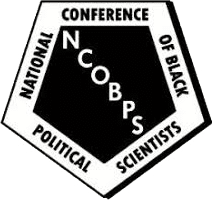National Conference of Black Political Scientists: Call for Papers
52nd Annual Conference, March 10-13, 2021
“Black Politics and Black People as the Conscience of Nations”
Conference Co-Chairs:
Gladys Mitchell-Walthour, University of Wisconsin-Milwaukee, mitchelg@uwm.edu
Ollie Johnson, Wayne State University, ollie.johnson@wayne.edu
Donn Worgs, Towson University, dworgs@towson.edu
The Congressional Black Caucus (CBC) will be celebrating its 50th anniversary in 2021. The CBC has been deemed the “Conscience of Congress” in recognition of its broader commitment to racial and economic justice for African Americans, Africa, and the Diaspora. In light of the CBC’s 50th anniversary, the National Conference of Black Political Science (NCOBPS) seeks papers, panels, and roundtables that examine how Black people in the United States and the African Diaspora are often viewed as the “Conscience” of their nation-states and the moral authority in social movements and institutional politics. This includes Black voters and candidates, as well as Black women who are often the moral compass that shapes the direction of Black politics and the nation-states. The Black Lives Matter-inspired protests in the Summer 2020 further exemplify the transformative impact of Black political agency. Even in Latin America Black women are leading constituents in elections and social movements, such as in Brazil, where they have been critical in shaping presidential and state elections. The conference theme—“Black Politics and Black People as the Conscience of Nations”—examines the multi-layered ways in which Black Politics, both domestic and abroad, continue to serve as moral anchors for advancing liberation, justice, and ameliorative policies. Accordingly, scholars are invited to submit papers, panels, and roundtables drawing from a range of methodological approaches that explore the “Conscience” of Black Politics, including the CBC and other legislative caucuses, social movements, the 2020 elections, Africa and the Diaspora, and public policies. We especially encourage graduate and undergraduate students to submit proposals.
